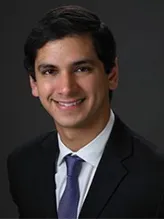On a monthly basis, the two of us do our best to write a note to all 5,000 of our partners about something that we believe is important, worthy of interpretation or further understanding, and topical. It is a difficult monthly exercise because we always do our best to make it personal as we share with each of you what is truly on our minds. It is also an exercise that we enjoy immensely. As you know, for August letters, we give ourselves the month off and ask our summer analysts and associates to share with all of us what is most important and personal to them. It could be an idea, thought, perspective, observation, theme or worthy objective. The assignment is broad and open ended, and that makes it all the more challenging.
Jefferies’ senior leaders reviewed all 358 summer intern letters from our U.S., EMEA, and Asia offices, and picked our winners without seeing the names of any authors to ensure complete objectivity. This process was not easy, as the submissions were all motivating, honest, and thoughtful; but five stood out to us.
We are happy to share the winning letters, from Daniel Chi, Isha Jha, Rohit Kumar, Sejal Rajagopalan, and Alejandra Requesens Leibenger, with the entire firm today.
Thank you to all of our interns, as each of you presented letters that embodied the values we live by at Jefferies: originality, quality, creativity, honesty, and directness. Your letters moved us, and reading them is the perfect way for us to complete the wonderful summer we experienced with each of you spread throughout our various offices. Each of you should be proud of yourselves for your hard work, talent, integrity, perseverance and goodness.
To the vast group of Jefferies leaders who mentored and contributed to our interns, we also want to thank you for making sure everyone had an exciting and memorable summer. Ensuring our future leaders have a chance to understand Jefferies’ culture and capabilities is invaluable.
Stay safe, have a wonderful August, and thank you again to all our summer interns,
Rich and Brian
RICH HANDLER
CEO
Jefferies Financial Group
BRIAN FRIEDMAN
President
Jefferies Financial Group

Daniel Chi
Division: Investment Banking – Generalist
School: Cornell University, Johnson Grad School of Management
What does it mean to be a banker? What does one look like and what does it take to be one?
As an MBA Associate, I’ve been chasing this position for the better part of 6 years. As someone who switched majors halfway through college, I discovered finance late. As a son of immigrant parents who worked paycheck-to-paycheck to put food on the table, I had no connections in the world of business & finance.
Upon graduation, I took a job as a headhunter for banks and hedge funds to build a network in financial services. I leveraged that network to join a premier bank in wealth management, selling financial products. I ultimately spent more time in an operational client-facing capacity than anything else. During this time, I was preparing to go back to school to take another shot at becoming a banker.
Throughout this time, I kept redefining my answers to the questions posed above. A glamourous world of prestigious professionals with perfect profiles and pristine resumes. Cutthroat type-A young professionals staying in the office later than their peers to prove that they alone have what it takes to succeed. Sacrificing any and all personal life for that glorious honor of being a banker. The opportunity to generate the wealth to tell my parents: “thank you – you can rest now.”
In just a few weeks at Jefferies, I’ve come to redefine my definitions and expectations of banking. Thanks to the generalist nature of the internship and the flat structure of the organization, I’ve been able to meet people across different groups, at every level of seniority. The common tie among them wasn’t by background by any means; for every ivy-minted banker that came to Jefferies from a branded bulge to build a practice, there was another that fought tooth and nail to earn their seat from no-name schools and ancillary shops. Instead, the thread of commonality I saw was the grit, determination and collaboration I’ve seen in every member of the firm. I’ve learned to carry what I had perceived previously as the “chip on my shoulder” as a badge of pride – and feel welcomed in a community of ambitious and high-performing individuals that are here to capitalize on the opportunity for growth that exists at Jefferies as it does nowhere else.
Ultimately, this opportunity is the reason why people are here. It’s the reason why MDs have flocked to the firm to chase deals they couldn’t pursue before, and why analysts stay as associates knowing that they’ll take more ownership and responsibility earlier than they can elsewhere.
The pursuit of this growth is all that matters – there is no need for needless face time in the office, and every team I’ve worked with thus far has done a great job of letting gung-ho, need-to-impress-always interns like myself know when I should enjoy a night and catch up on personal life. Workplace flexibility isn’t a buzzword at Jefferies, it’s a standard that was evident from day one. I remember being surprised at the total absence of desktops at the office upon starting my internship, and at the fact that even junior bankers could wrap up at home after having dinner with loved ones – this wasn’t what I had expected of banking coming in, after hearing horror stories during my pursuit of this role.
Joining Jefferies means joining a bank that is redefining what banking means. Collaboration here goes beyond constant communication on workflows. It means analysts years younger than me becoming my mentors, by going out of their way to check in on my progress and taking an additional hour at 11pm to teach me things. It means a desk mate walking down to Jef’s to grab me a bag of chips to replace one that a senior banker… accidentally borrowed while I was away. It means an organization of professionals who value your drive and inherent value-add over your background and who you know.
What does it mean to be a banker? You can be sure that Jefferies will continue to let the world know.

Isha Jha
Division: Fixed Income Sales & Trading
School: Wesleyan University
If a random individual is surveyed on the street and asked for their thoughts on Wall Street and finance, the response will likely be unfavorable. Quite frankly, if I was surveyed at the start of the summer, I would likely have had a similar reaction. In fact, if I had chosen to spend the summer anywhere but Jefferies, I likely would have maintained that negative reaction. Open the newspaper, turn on the TV, or check Twitter (especially during “yucky” times like these where Wall Street is singled out for turning a profit) and the negativity bias against the street is glaring. Attending a liberal arts school and sitting in an ivory tower has afforded me the luxury, either fortunately or not, to make sweeping generalizations and characterize events and people as being either right or wrong, good or evil. However, my initial foray into the “real world” has emphasized the nuanced nature of the world in which we coexist.
What makes Jefferies stand apart from other shops on the street is its prioritization of its people, both from a client and internal firm perspective, transparency, honesty, and being direct and upfront. The firm’s people-centric nature drives a reciprocal relationship in which employees are willing to go above and beyond for one another, their clients, and the firm. Traders are willing to sacrifice personal P&L for their clients and the firm and in turn, the firm reciprocates the relationship by prioritizing its people. Jefferies emphasizes this relationship in part through transparency and honesty both with its clients and intra-firm. The emphasis on honesty and on the process to get to the right answer allows Jefferies to not only maximize profit but also gives them the most genuine opportunity to do what’s “right”. To balance both, the firm and individuals must be direct and upfront with one another. Something that I have noticed is how we as interns, are expected to interact with the firm in a constructive way which allows for us to give our real, genuine, and honest input. It is abundantly clear that the firm genuinely wants to hear from juniors and believes that what we have to say is of value. This allows for fresh and honest ideas that will hopefully lead to a better and more efficient system.
While I personally maintain that there is and will always be room for increased ethical and socially responsible investing, I’ve come to realize that maybe it isn’t so much where the money is going and what the headline is saying but rather the process of investment. The world in which we live, especially now, is far more complex than anyone wants to admit. So, what does that mean? As a bank with the resources and name recognition to make a difference, what can we do? From my experience, Jefferies clearly attempts to do the right thing no matter what the circumstance. While it is impossible to get it right all the time, the people and the process at Jefferies make it so that we can and will get it right as often as humanly possible.

Rohit Kumar
Division: Investment Banking – Energy
School: Texas A&M University
A Not-So-Finance Finance Internship
When I told my friends that I’d be interning at a financial services firm this summer, they very kindly and very promptly alerted me that I must be a very boring and dull and self-centered person, for only these types of people worked at such firms. Ever the kind friends that they are, they also offered some career advice for me: if I had any hope of succeeding in this boring, dull, and self-centered job then I must immediately abandon any personality or hobbies of mine and henceforth mold myself into the stereotypical finance person.
To my friends, this meant becoming a heartless, cold, and utterly dry excel-fanatic (and probably a couple things from the Wolf of Wall Street that I can’t mention).
With such great encouragement, I entered this internship slightly nervous, unknowing if I’d first be greeted by the killer Managing Directors who breathed fire that my friends had warned me about or the terrifying Associates who’d were rumored to crush the skulls of inefficient analysts with their bare hands.
However, halfway through the internship my skull is still intact and the people I’ve met could not be further from the descriptions of the ruthless, one-dimensional accounts my friends had given.
I’ve met people like Wyatt, an analyst who immediately after college moved to Cambodia for two years to serve the community there. I’ve worked with Juan, an avid hiker who’s probably the funniest person I’ve ever met and whose stories always manage to make me burst out in laughter.
I’ve met parents who’ve been doing this job for decades. I’ve met musicians and athletes and fishermen and people who’ve grown up all the way on the other side of the world. I’ve even met people who started off as wide-eyed interns and who are now the Managing Directors who greet me not with flames of fire, but with wide smiles each morning.
It’s not just the people I’ve met, but also the work that has been such a pleasant surprise. Each day I get to work on something new and exciting, and I know that every bit of work that I’m getting exposure to is something that will impact the markets and large masses of people.
When I tell my friends that my internship experience has not been the Game of Thrones experience they had foretold -but rather quite an enjoyable experience- they are quick to dismiss me and tell me that too many hours spent looking at numbers has broken my brain.
It’s not too much better when I tell my parents about the internship either, for all my mother cares about is whether I’m wearing clean underwear and eating. My father at least tells me he’s glad I’m liking the internship.
I don’t mind this. I’ve lived in three different countries and have met people from all walks of life. I’ve learned that life is a long and strange journey, and that it’s best taken alongside caring people who fill it with laughs and happiness. These are the type of people I’ve met at Jefferies, and this is why I’ve had such a rewarding not-so-finance finance internship.

Sejal Rajagopalan
Division: Investment Banking – Generalist
School: Rutgers University
Curing the Imposter Syndrome
“I don’t even know how I got this internship.” “I’m not smart enough for this.” “Everyone else is so much better than me.”
Imposter syndrome is real, especially in the finance industry. Being surrounded by some of the brightest people around can make you feel like you don’t belong. But, you’re not alone. Everyone has imposter syndrome or has had it at some point in their life—even Rich Handler! Here are some tips that I have learnt over the summer on how to conquer it:
- The only person you should be comparing yourself to is yourself. You don’t need to be the smartest person in the room, you just need to work hard and be the best version of yourself that you can be. Focus on yourself and don’t compare yourself to others—your peers are not your competition! Each one of us is on our own journey and have our own path to take.
- Don’t overthink small things. When you’re an intern, it can feel like your world is ending when you make a mistake. During my internship, I sent the wrong file in an email to the SVP on my deal, so I tried recalling it and resent the same email with the correct file. The recall didn’t go through, however, so the SVP ended up getting the same exact email twice with different files and no explanation. My first thought was that I wasn’t going to get a return offer and I proceeded to type out long apology paragraphs to my analysts. After going up to my analyst’s desk, he told me that they all just laughed about it and brushed over it. The reality is that no one really cares. Most people have probably made the same mistakes that you’re making and completely understand.
- No one is perfect—everyone is learning as they go, just like you. You might feel that everyone around you knows everything but that’s not the case at all! People are still googling things and asking each other for help. Investment banking has a huge learning curve, and everyone is still constantly learning on the job.
- Remember that you are here for a reason. I’ve heard way too many people, including myself, say that they got the internship by a fluke. However, that’s not true. The people who interviewed you saw something special in you and truly believed you would be an asset to the firm. Believe in yourself and your abilities and know that you were meant to be here.
- Stay true to yourself. Be it trying to get into the group you want or connect with that MD, never change yourself or try to pretend you’re someone you’re not. I, for one, use excessive exclamation points and caps lock when I text and was afraid my analyst would think I was weird for doing that. But, I realized that exclamation points are just a part of my personality and decided to let that shine. Needless to say, I’m sure my analysts love receiving my exclamation point-filled daily teams messages! Jefferies is a place filled with so many different personalities and backgrounds. Let your true, authentic self show through and you will end up where you are meant to end up.
Modify your sentences to these: “I deserve this internship.” “I am a hard worker.” “I am being the best version of myself.”

Alejandra Requesens Leibenger
Division: Equity Sales and Trading
School: University College London
I usually hate writing about my disability in these kinds of things, not because I’m ashamed of it, but because it makes me feel like it is my one defining feature, which is far from the truth. However, when given the opportunity to write this letter addressing Jefferies’ employees and partners, I feel like it was the perfect topic for it.
Entering the working world with a visual disability was very scary for me. All I could think about is, why would they hire someone with a disability who needs accommodations and extra resources to perform all her tasks, when they could hire someone who is able-bodied and save themselves the trouble? At the end of the day, companies are looking for employees who will add value to their firm, and I had convinced myself that my disability would cloud any value that I could add.
It hasn’t taken me long since I started my internship at Jefferies to learn that this is far from the truth. In fact, everyone I have spoken to and worked with has showed me that needing to enlarge my screen, or to have documents printed in a larger font is not going to eclipse my good ideas, or opinions; that nobody minds describing what is going on in their screen if I can’t see it, as long as I am engaged and willing to learn.
I especially remember having a conversation about cognitive diversity that was the missing piece for me to fully change my perspective of my place in a business. In a company like Jefferies, global and client facing, cognitive diversity, which is the inclusion of a variety of people with different thought patterns, ideas, problem-solving methods, and mental perspectives, is indispensable to succeed, and can only be achieved through a diverse workforce: diversity of backgrounds, race, gender, sexual orientation, disabilities… So not only does my disability not cloud my other achievements and qualities, but it is helping me to add value in my own unique way.
I have learnt a lot of things throughout my internship and I am very grateful for all the opportunities that I have had so far this summer, but I am especially grateful to everyone in Jefferies who has reminded me of my value, and advocated for my success, from senior employees taking time out of their day to sit with me and answer my questions, to my fellow interns who have supported me throughout the programme; and to Jefferies for setting up the resources and support necessary to achieve this cognitive diversity in their business.

